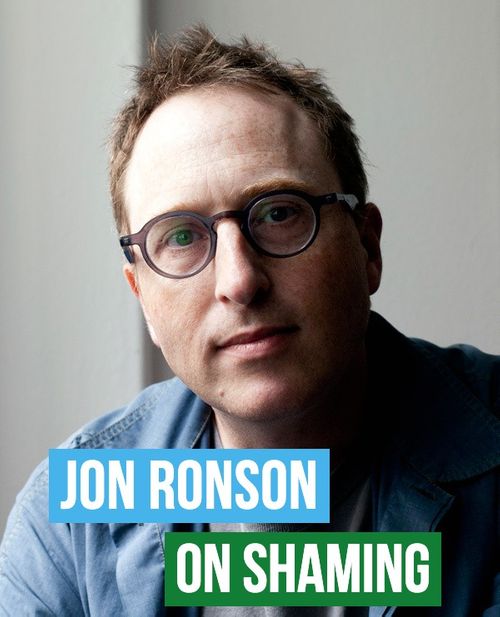Jon Ronson on the power (and dangers) of online shaming
Sep 09, 2020 · 2 mins read
0
Share

Author and journalist Jon Ronson first glimpsed the power of online shaming when he found another Twitter account using his name and likeness, tweeting things he would never say.
Save
Share
It turned out to be a bot created by university students – and they didn’t agree with Ronson’s view that this constituted identity theft. When the argument became public, the students were inundated with abuse: a backlash that was disproportionate to the offense.
Save
Share
When incidents erupt on social media, Ronson says, people are scared to empathize. The resulting lack of empathy not only makes public shaming ineffective in terms of righting wrongs, but it can have drastic consequences on people’s mental health.
Save
Share
The benefit of social media is that it allows movements like Black Lives Matter and MeToo to hold powerful people accountable, changing society for the better. The downside is that any perceived wrongdoing gets picked apart with a frenzied, microscopic analysis.
Save
Share
Even though curiosity and empathy are vital tools of understanding, they get overpowered by hard judgment. And the side of social media where hard judgment gets rewarded is dangerous.
Save
Share
Twitter can be a powerful way to give a voice to the voiceless. But society is becoming such a surveillance state that the most sensible attitude is to be bland and say nothing controversial online, effectively becoming voiceless. Is that really what we want?
Save
Share
Twitter connects the world, but it’s often a terrible information-sharing tool. Someone can be torn to shreds in a pile-on only for the real facts to emerge later. But instead of pausing to reflect, the mob simply moves on to the next controversy.
Save
Share
Online shaming tends to underline political faultlines. Free-speech advocates and right-wingers point to these controversies as “political correctness gone mad”, while people on the left tend to come up with all sorts of rationalizations to justify the disproportionate punishments doled out.
Save
Share
The justice system allows for ex-offenders to be reintegrated with society once they’ve done their time. But if you’re a private individual who has been publicly shamed for doing something dumb or inappropriate, Ronson says, the online world is less forgiving.
Save
Share
Public shaming cannot be regulated by anyone other than the public itself. As judge and jury, it’s up to every individual to be aware of the ethics involved in how power is used. If you see an instance of shaming that feels disproportionate, start by speaking up.
Save
Share
0